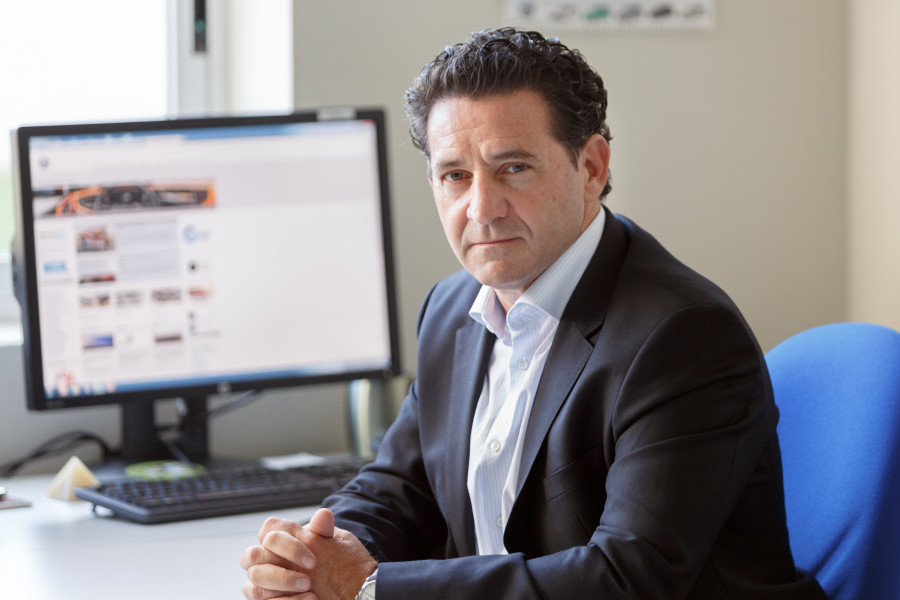"We cannot allow any supplier to be left behind"

Miguel Ángel Royo says that the COVID-19 pandemic has had “a drastic impact. On the one hand, because we are no longer going to manufacture the number of cars we had planned, and that affects us directly in the income statements, both for OEMs and suppliers. On the other hand, because our suppliers have been stopped for many weeks without billing customers, some have serious financing problems and we cannot let our supplier structure fall. We cannot allow any supplier to be left behind".
Regarding possible relocations of suppliers, Royo considers that “it is still too early to discuss the medium- or long-term strategy, since it has affected Chinese suppliers as much as it has German, Italian and Spanish suppliers. It was not a specific country or region. Right now we are 100% involved in getting ahead of this situation with our suppliers”.
“Right now we are 100% involved in getting ahead of this situation with our suppliers”
The Volkswagen Navarra executive points out that “we are working with all suppliers side by side, analysing stocks, coverage, urgent transport, etc. Every day we hold video conferences with critical suppliers. Regarding sanitary protocols, before resuming production we summoned all the regional suppliers in Volkswagen Navarra in several sessions and explained the sanitary measures, agreed with the Government of Navarra, that we were going to implement in our factory because for us the protection of workers was a priority”.
Regarding supply management, Miguel Ángel Royo states that “the monitoring and visibility of the supply chain that we have is precisely what has helped us not to stop the factory due to a lack of parts supply. We must continue to improve the entire supply chain through Industry 3.0, which has given us such good results.
“The monitoring and visibility of the supply chain that we have is precisely what has helped us not to stop the factory due to a lack of parts supply"
Regarding the measures focused on greater risk control and containment, the manager states that “logically, the large reduction in production has led us all to implement cost-saving and cost-containment measures. We have determined four working areas, and there is a permanent workshop for each of these groups, in order to reduce costs to guarantee our future. We know that our suppliers are in the same line of optimisations.
Regarding rethinking the management model, Miguel Ángel Royo says that “right now we are only working on how to get out of the day to day. We will see later if there is a new management model or if we maintain the current one with the experiences gained. We have learned that communication with the supplier and the control of the supply chain that we have is good and robust and that, therefore, we must continue to improve in this direction through new technologies”.
”
Read the complete information in the next issue of AutoRevista nª 2.350.

A requerimiento de AutoRevista sobre la imposición de aranceles del 30% a vehículos y componentes de la Unión Europea por parte de la Administración Trump, desde CLEPA señalan que "instamos encarecidamente a la UE a que impulse una exención para las piezas de automóviles en cualquier acuerdo.

La Asociación Española de Renting de Vehículos acaba de presentar su informe anual, y con él cifras más que optimistas para el segmento. Tanto es así que el parque de vehículos en renting ha crecido el 6,11% durante el primer semestre de este 2025 (una cifra levemente superior a la prevista por la asociación, el 6%), lo que implica que este asciende a 984.354 unidades totales.

Nissan ha construido un nuevo centro de reacondicionamiento de vehículos en la Planta de Nissan Ávila, diseñado para ofrecer a los clientes la experiencia de reestrenar un coche, gracias a un proceso altamente especializado y con los estándares de calidad Nissan.

PowerCo Battery Spain (PowerCo) y el ITE (Centro Tecnológico de la Energía) han establecido un acuerdo de colaboración con el objetivo de incrementar las capacidades formativas sobre esta industria pionera en España.

La filial española de Dacia ha designado a un nuevo Comité de Dirección con el propósito de continuar creciendo en 2025, después de lograr los mejores resultados de su historia en el primer semestre del año con un 9,6% de la cuota del mercado a particulares.
